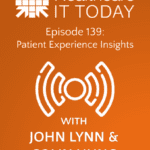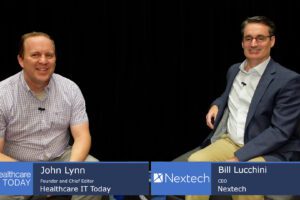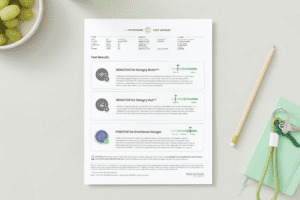The following is a guest article by Brett Petersen, Chief Revenue Officer at Inbenta
The Technology Uses Natural Language Processing (NLP) to Give Artificial Intelligence a Human Touch
Picture this: It’s 3 a.m. and you’re not feeling well. You have burning questions about your symptoms or medication, but your doctor’s office is closed and you don’t want to endlessly search the internet for questionable information. Now imagine getting real answers fast, 24/7, 365 days a year.
That’s the power of conversational AI. It’s why the healthcare industry is starting to use the technology to bridge the gap between patients, caregivers, and the information they need. It may even be something you or your team are already thinking about. You wouldn’t be alone. According to AIM Research, by 2024, 40% of enterprise applications will have conversational AI built in. It’s a fast-growing part of the healthcare IT landscape. The reason is obvious: illness doesn’t keep a schedule.
Conversational AI excels in answering common patient questions, the kind found in healthcare documents and databases. And it gives doctors and other caregivers quick access to the wealth of information scattered throughout their organization, from the massive medical journals and references to the internal records that may be hard to track down. It can even streamline billing and medical appointments, saving time and paperwork and ensuring the information is accurate and up to date.
It’s like having a virtual healthcare assistant at your fingertips, automating frontline tasks that can help both patients and caregivers. Imagine having access to a conversational AI after surgery, ready to answer questions about your medications and their side effects. Or one that gives healthcare professionals a step-by-step guide to the latest protocols. In a field where following the rules matters, having a reliable AI pull up the latest file or guideline can be, perhaps literally, a lifesaver.
It’s no surprise that, according to EMR, the global AI market is expected to reach $6 trillion by 2026.
Yet not all AI is created equal. Generative AI, while powerful, is basically a black box. It generates responses based on patterns it’s learned, but its answers can be unpredictable and how it came up with them is sometimes a mystery. This can be a major risk for an industry like healthcare, where compliance, protocols, and privacy are essential.
Conversational AI based on natural language processing (NLP) is different. It’s more like a glass box — fully transparent in how it works. NLP systems can understand the nuances of language to parse the meaning behind a question. They also use machine learning to constantly improve their responses. For patients, a conversational AI can provide a back-and-forth dialogue, asking follow-up questions and showing empathy and understanding.
How do you know if conversational AI is right for your organization? First, you need to know your goals. Are you looking to deflect a large portion of your common or routine questions? If so, a chatbot may be the answer. It can also handle certain admin tasks, like setting up appointments, and can escalate issues that need immediate attention.
In many cases, having a real person verify the information that’s shared with patients or caregivers is the best approach. It helps ensure that the information is not only accurate but delivered in a compassionate and personalized way.
Whatever technology you choose, transparency is key. Patients must always know if there’s an AI in the mix. And healthcare providers need to know where the information is coming from and how it’s being used. In this industry, trust and transparency are non-negotiable.
The healthcare equation will always be technology plus humanity. What separates conversational AI is its ability to make healthcare more personal, more compassionate, and more available. More human, in an industry where people come first.
 About Brett Petersen
About Brett Petersen
Brett Petersen is Chief Revenue Officer at Inbenta, a global customer-experience AI platform.













